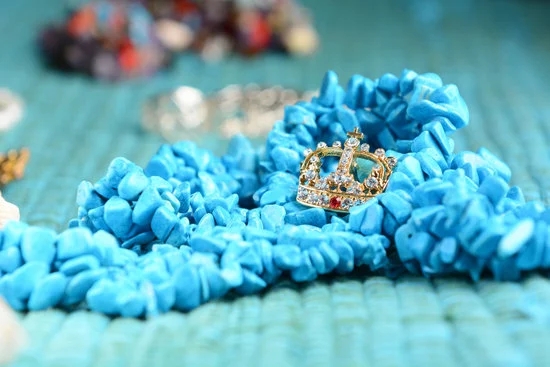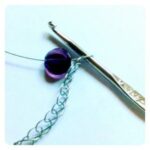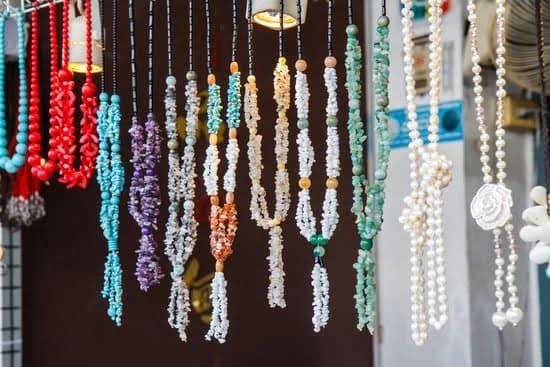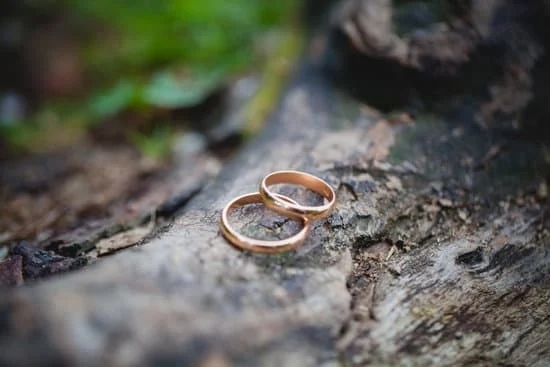Are you interested in learning how to make handmade wooden jewelry boxes? Crafting your own unique jewelry box is a rewarding and creative endeavor that allows you to showcase your woodworking skills while creating a functional and beautiful piece. In this article, we will guide you through the step-by-step process of making a handmade wooden jewelry box, from selecting the right materials to adding personal touches and finishing touches.
Handmade wooden jewelry boxes are not only practical for storing your precious accessories, but they also add a touch of elegance and charm to any dresser or vanity. The natural beauty of wood can be showcased through intricate designs and attention to detail, making each handmade jewelry box a one-of-a-kind piece.
Whether you are a seasoned woodworker or just starting out, creating your own handmade wooden jewelry box is a fulfilling project that allows you to express your creativity.
In the following sections, we will cover everything you need to know about making a handmade wooden jewelry box, including the materials needed, choosing the right wood, designing and measuring, woodworking tools and techniques, adding decorative elements, applying protective finishes, and how to properly maintain the beauty of your finished creation. So let’s get started on this exciting journey of creating your very own handmade wooden jewelry box.
Materials Needed for Making a Handmade Wooden Jewelry Box
When it comes to making a handmade wooden jewelry box, the materials you choose will play a significant role in the overall quality and appearance of the finished product. Here are some essential materials you will need:
1. Wood: The most important material for your jewelry box is, of course, wood. You can choose from a variety of options such as oak, cherry, maple, or walnut. Each type of wood has its own unique characteristics and grains, so choose one that best suits your personal style and preferences.
2. Hardware: You will also need hardware such as hinges, clasps, and knobs to complete your jewelry box. Consider using high-quality hardware that complements the design and style of your box.
3. Wood glue: A durable and reliable wood glue is essential for assembling your jewelry box. Look for a strong adhesive that is specifically designed for woodworking projects.
In addition to these main materials, you may also need other supplies such as sandpaper, wood stain or paint (if desired), and a protective finish such as varnish or lacquer. By using high-quality materials, you can ensure that your handmade wooden jewelry box will be both beautiful and long-lasting.
| Materials | Examples |
|---|---|
| Wood | Oak, cherry, maple, walnut |
| Hardware | Hinges, clasps, knobs |
| Wood glue | Durable adhesive for woodworking projects |
| Sandpaper | Various grits for smoothing surfaces |
Step-by-Step Guide on How to Choose the Right Wood for Your Jewelry Box
When making a handmade wooden jewelry box, one of the most crucial decisions you will make is choosing the right type of wood. The type of wood you choose will not only impact the overall look and feel of your jewelry box but also its durability and longevity. Here’s a step-by-step guide on how to choose the right wood for your jewelry box.
Consider the Aesthetics
The first aspect to consider when choosing wood for your handmade jewelry box is the aesthetics. Think about the color, grain pattern, and natural characteristics of different types of wood. Do you prefer a light or dark colored box? Are you drawn to fine, tight grain patterns or bold and distinctive ones? Consider these aesthetic preferences when selecting your wood.
Think About Durability
In addition to aesthetics, it’s important to think about the durability of the wood. Jewelry boxes are meant to last for years to come, so you’ll want to choose a wood that can withstand regular use. Hardwoods like maple, cherry, walnut, and oak are popular choices for their strength and ability to resist wear and tear.
Consider Workability
Lastly, consider the workability of the wood. Some woods are easier to work with than others, especially if you plan on embellishing your jewelry box with carvings or intricate designs. Woods like cherry and mahogany are known for their workability and are often favored by artisans for their ability to hold intricate details.
By carefully considering aesthetics, durability, and workability when choosing your wood, you can ensure that your handmade wooden jewelry box turns out both beautiful and long-lasting.
Design and Measurements
When making a handmade wooden jewelry box, the first step is to create a blueprint or design plan. This will serve as your guide throughout the woodworking process. The design should not only be aesthetically pleasing but also functional, with compartments that can hold different types of jewelry such as rings, necklaces, and earrings. Consider the size of the box as well, ensuring that it is spacious enough to accommodate your jewelry collection.
Before you start building, it’s important to choose the right type of wood for your jewelry box. Hardwoods such as cherry, maple, and oak are popular choices due to their durability and attractive grain patterns. Softwoods like pine can also be used if you prefer a more affordable option.
Once you have selected the type of wood, it’s time to take accurate measurements for your blueprint. Precision is key in woodworking, so use a ruler or measuring tape to ensure that all dimensions are correct.
In addition to the overall size of the jewelry box, consider the internal layout and compartmentalization. Think about how many sections you’ll need for different types of jewelry items and plan accordingly. A well-thought-out design will not only make your jewelry box visually appealing but also practical for everyday use.
| Wood Type | Characteristics |
|---|---|
| Cherry | Durable with rich color tones |
| Maple | Hardwood with fine grain; easy to work with |
| Pine | Softwood with lighter color; budget-friendly option |
Tools and Techniques for Woodworking
Woodworking requires the use of various tools and techniques to craft a durable and stylish handmade wooden jewelry box. Here are some tips on how to effectively utilize these tools and techniques:
Tools needed for woodworking:
– Saw: A saw is essential for cutting the wood pieces to the desired measurements and shapes. A table saw or a hand saw can be used depending on your preference and expertise.
– Wood glue: This adhesive is crucial for joining the different parts of the jewelry box together securely.
– Clamps: Clamps are used to hold the wood pieces in place while the glue dries, ensuring a strong bond between the joints.
– Sandpaper: Sanding is an important step in woodworking to smoothen rough edges and surfaces, creating a polished finish for your jewelry box.
Techniques for crafting a durable and stylish jewelry box:
1. Precision measuring and cutting: Accurate measurements and precision cutting are crucial in creating a well-crafted jewelry box. Take your time to measure twice before making any cuts to ensure that the pieces fit together perfectly.
2. Proper assembly: When joining the wood pieces together, apply an even layer of wood glue on each joint and use clamps to secure them tightly. Allow sufficient time for the glue to dry before proceeding with the next step.
3. Attention to detail: Pay attention to details such as grain direction, wood pattern, and joint alignment to achieve a visually appealing and professionally crafted jewelry box.
By utilizing these tools and techniques effectively, you can create a handmade wooden jewelry box that is not only durable but also stylish in its design.
Decorating Your Jewelry Box
When it comes to creating a handmade wooden jewelry box, adding personal touches and embellishments is where you can truly make it your own. Whether you’re making the box for yourself or as a gift for someone else, decorating the jewelry box is a fun and creative process that allows you to showcase your individual style and personality.
Here are some ideas for how to decorate your handmade wooden jewelry box:
- Wood Carving: If you have the skill and tools, consider carving intricate designs or patterns into the wood of the jewelry box. This adds a unique and detailed touch to the box, making it truly one-of-a-kind.
- Inlay Work: For a more ornate look, you can incorporate inlay work using different types of wood, metal, or even precious stones. This can be done by carefully cutting out spaces in the wood and fitting in pieces of other materials to create stunning designs.
- Paint or Stain: Adding color to your handmade wooden jewelry box can be done through painting or staining. You can choose a single color for a classic look, or get creative with different shades and patterns.
- Hardware and Accents: Enhance the look of your jewelry box by adding decorative hardware such as metal knobs, handles, or hinges. You can also use beads, gems, or other small accents to further personalize the design.
Decorating your handmade wooden jewelry box is an opportunity to let your creativity shine. Whether you prefer minimalistic elegance or bold and intricate designs, there are countless ways to make your jewelry box uniquely yours. With these ideas in mind, let your imagination run wild as you bring your vision to life through beautiful decorations and embellishments.
Finishing Touches
Adding a protective finish to your handmade wooden jewelry box is essential to ensure its longevity and durability. This final step not only adds a layer of protection but also enhances the natural beauty of the wood. There are various finishing options to choose from, each offering different levels of protection and aesthetics.
Choosing the Right Finish
When it comes to selecting a finish for your wooden jewelry box, there are several options to consider. Common choices include varnish, lacquer, shellac, and wax. Each type of finish has its own unique characteristics and application methods. Consider the look you want to achieve and the level of protection needed when choosing the right finish for your jewelry box.
Application Process
Before applying any finish, it’s important to prepare the surface of your jewelry box by sanding it smooth and removing any dust particles. The application process will vary depending on the type of finish you choose. Some finishes may require multiple coats and sanding in between coats, while others may only need a single application. Follow the manufacturer’s instructions carefully for best results.
Protective Benefits
Applying a protective finish not only adds a layer of defense against scratches, moisture, and wear but also enhances the natural grain and color of the wood. Additionally, a protective finish can help prevent warping or cracking over time, especially if the jewelry box is regularly exposed to changing environmental conditions. Taking the time to apply a protective finish will ensure that your handmade wooden jewelry box remains in top condition for years to come.
Maintenance and Care
After putting in the time and effort to create a beautiful handmade wooden jewelry box, it’s important to ensure that it stays in top condition for years to come. Proper maintenance and care are essential for preserving the beauty and functionality of your jewelry box. In this section, we will discuss some tips on how to keep your wooden jewelry box looking its best.
First and foremost, it’s crucial to regularly clean your handmade wooden jewelry box to prevent dust and dirt from accumulating. Use a soft, dry cloth to gently wipe down the exterior and interior of the box. Avoid using harsh cleaning chemicals or abrasive materials as these can damage the wood or finish. For stubborn stains or marks, lightly dampen the cloth with water or a mild wood cleaner, then immediately dry the surface with another clean cloth.
Additionally, it’s important to protect your wooden jewelry box from extreme temperatures, humidity, and direct sunlight. Wood is sensitive to environmental changes, so it’s best to store your box in a cool, dry place away from heat sources and moisture. Consider placing silica gel packets inside the box to absorb any excess moisture and help maintain a stable environment.
Furthermore, regular inspection of your handmade wooden jewelry box is necessary to identify any signs of wear or damage. Check for loose hinges, cracks in the wood, or any other issues that may need attention. Promptly addressing any problems will help prevent further damage and prolong the life of your cherished jewelry box.
By following these maintenance and care tips, you can ensure that your handmade wooden jewelry box remains a timeless piece that brings joy for years to come. With proper upkeep, you can continue to admire the craftsmanship and beauty of your creation while safeguarding it against potential damage.
Conclusion
In conclusion, creating your own handmade wooden jewelry box can be a truly satisfying and fulfilling experience. From choosing the right wood to crafting the design and adding personal touches, every step of the process allows for creative expression and attention to detail. By following the step-by-step guide outlined in this article, you can learn how to make a beautiful and unique jewelry box that reflects your individual style and craftsmanship.
Crafting a handmade wooden jewelry box also provides a sense of accomplishment and pride. Knowing that you have created something functional and visually appealing with your own hands is a special feeling. Whether you are making it for yourself or as a gift for someone else, the effort and care put into making a handmade wooden jewelry box will surely be appreciated by its recipient.
Additionally, maintaining and caring for your handmade wooden jewelry box will allow you to enjoy it for years to come. With proper upkeep, such as cleaning and applying protective finishes as needed, your jewelry box can remain in top condition and continue to showcase your woodworking skills.
The process of creating, decorating, finishing, and maintaining your handmade wooden jewelry box ultimately culminates in not just an aesthetically pleasing accessory storage solution but also in a sense of achievement that comes from making something truly special.
Frequently Asked Questions
What Type of Wood Is Best for a Jewelry Box?
The best type of wood for a jewelry box is one that is both durable and visually appealing. Woods like cherry, oak, walnut, and mahogany are popular choices due to their strength and elegant grain patterns.
How Do You Make a Simple Wooden Box?
Making a simple wooden box involves cutting the wood pieces to size, creating joints for the corners, assembling the box using glue and nails or screws, sanding the surfaces smooth, and adding a finish like stain or varnish.
What Are the Steps to Making a Jewelry Box?
The steps to making a jewelry box typically include designing a plan for the box’s dimensions and features, selecting the wood and cutting it to size, joining the pieces together with precision, adding compartments or dividers inside, and finishing with sanding and polishing to achieve a sleek look.

Welcome to my jewelry blog! My name is Sarah and I am the owner of this blog.
I love making jewelry and sharing my creations with others.
So whether you’re someone who loves wearing jewelry yourself or simply enjoys learning about it, be sure to check out my blog for insightful posts on everything related to this exciting topic!





